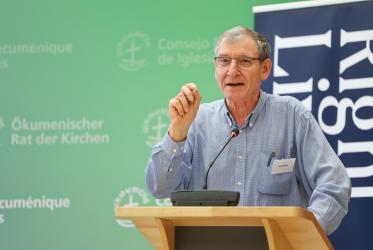Église unifiante d'Australie
The Uniting Church is the third largest denomination in Australia, behind the Roman Catholic and Anglican churches. According to census figures almost seven percent of the population claims an association with the Uniting Church - approximately 1,400,000 people - but the church itself has only 350,000 on its membership rolls. The Uniting Church was formed in 1977, bringing into one church the Congregational, Methodist and Presbyterian Churches throughout Australia. Minorities of Congregationalists and Presbyterians stayed out of the union. The church has a strong ecumenical commitment, with national dialogues with nine other Australian churches. As declared by its name, it seeks close cooperation and further union with other churches. The closest relationships and greatest cooperation are with the Anglican and Lutheran churches and the Churches of Christ (Disciples).
While the origins of this church lie in Europe, particularly in the United Kingdom, its present and future lie very much with Asia and the Pacific. The Uniting Church declared itself to be a multicultural church in 1985, and now includes in its membership over 150 congregations of Asian and Pacific migrants. This means that along with other communities, members of the UCA worship in more than 35 different languages (including indigenous languages). The UCA has formal partnership agreements with 32 churches in Asia and the Pacific, representing longstanding mission relationships and newer partnerships of solidarity and joint action.
Another initiative taken in the 1980s was the establishment of the Uniting Aboriginal and Islander Christian Congress, the semi-autonomous indigenous arm of the church. The Congress leads the church's ministry and mission with indigenous Australians, and is one of the largest indigenous organizations in the country.
The largest national agency of the church is Frontier Services, with its well-known network of patrol ministries (some undertaken by plane) and community services in the remote "outback" areas of Australia. Much of this work is done in cooperation with the Aboriginal Congress. These ministries receive government and public support and make the Uniting Church a most visible presence in the outback.
The church manages a huge national network of community services, collectively called UnitingCare. Its agencies are found in every corner of the country and provide employment for over 70,000 Australians.
The Uniting Church follows a largely Presbyterian polity, with local elders and church councils, 50 presbyteries, six synods and one national assembly. It is committed to the best of Christian scholarship, with six theological colleges and a distance education facility. The church has been instrumental in pioneering interfaith relationships in Australia. In the early 1990s the church moved to a consensus form of decision-making in the councils of the church, a system which has been adapted since by several other denominations and ecumenical bodies.
The largest issue facing the Uniting Church is how to combat the increasing secularism of Australia and a continuing decline in church membership. Homosexuality has been a controversial issue within the church for more than 20 years and the church's recent decision to leave decisions on suitability for ministry to local councils remains contentious. Other issues facing the church include ongoing tensions between the more liberal and the more evangelical streams within the church, difficult relationships with the conservative national government since 1996, maintaining connection between UnitingCare agencies and congregational life, the further development of inter-faith relationships, and reducing financial support for the ministries of synods and assembly.



